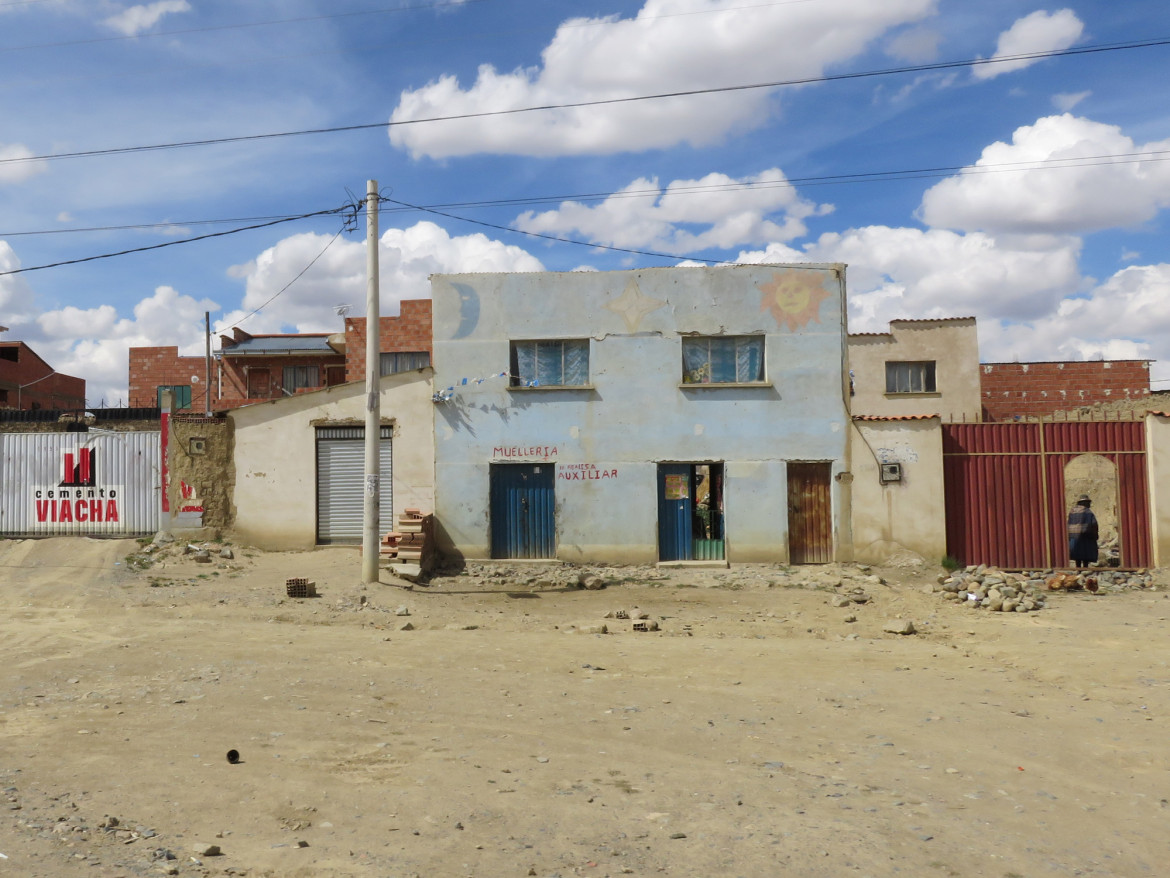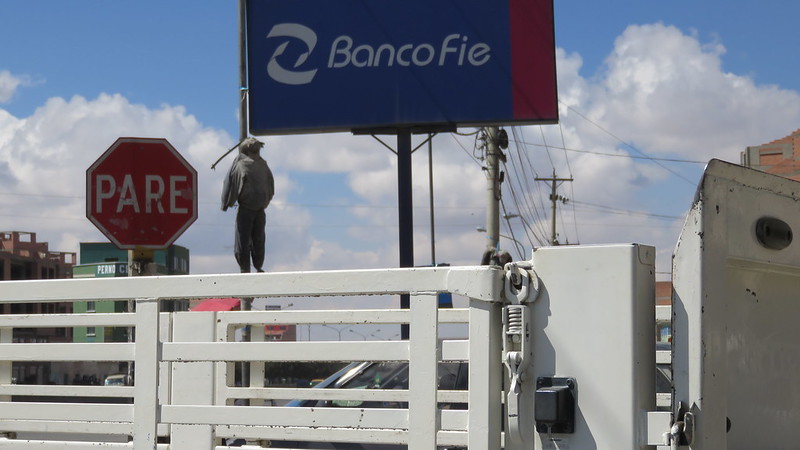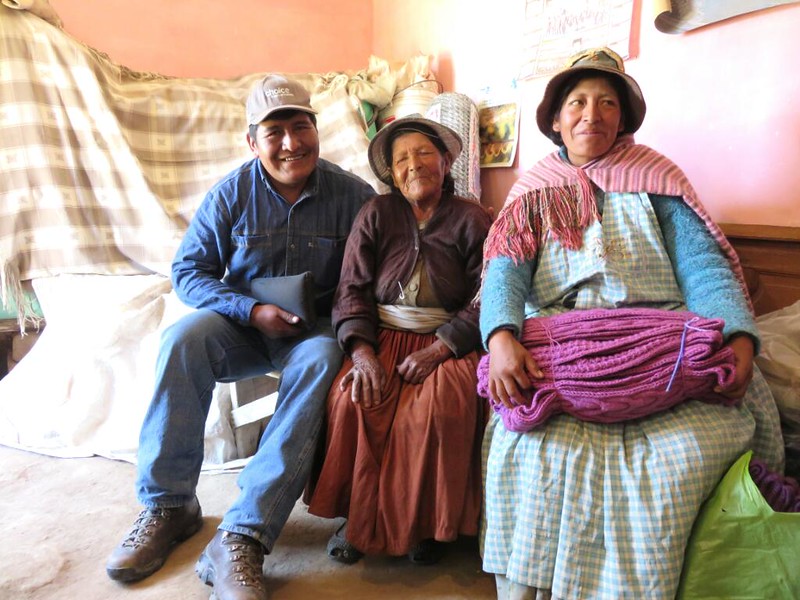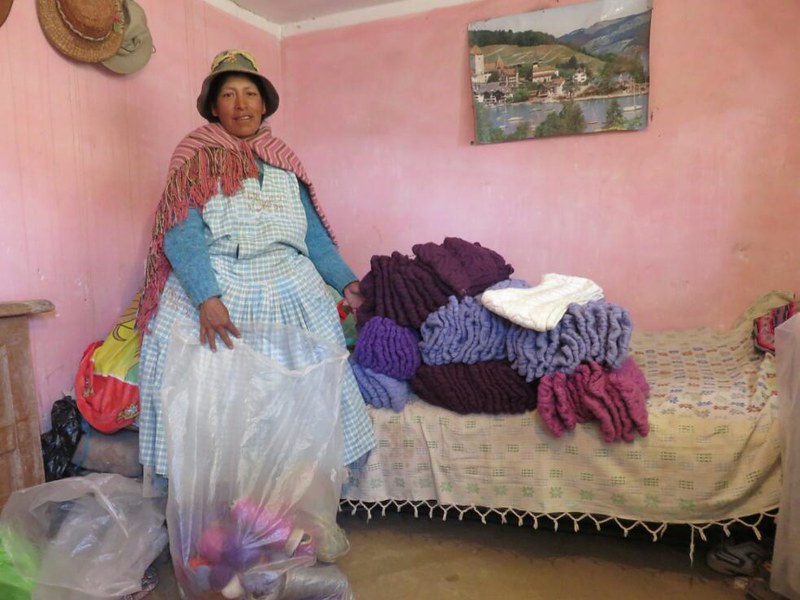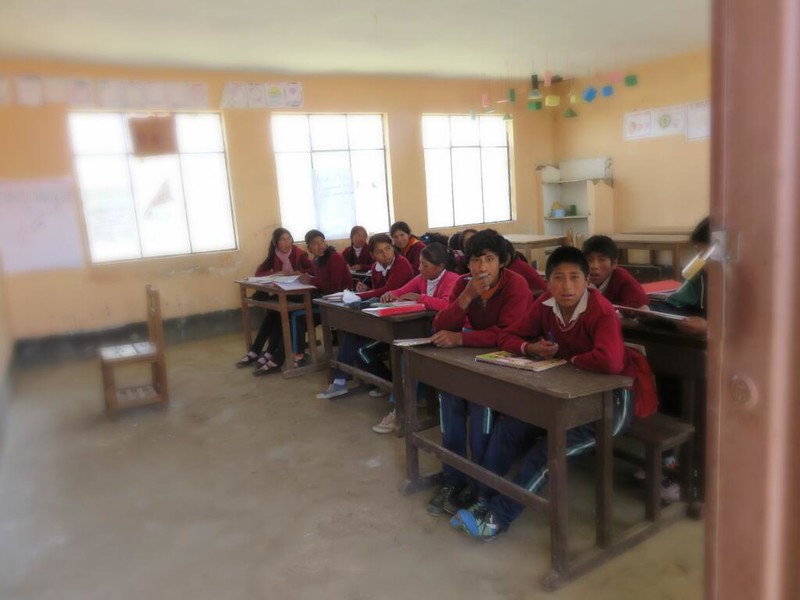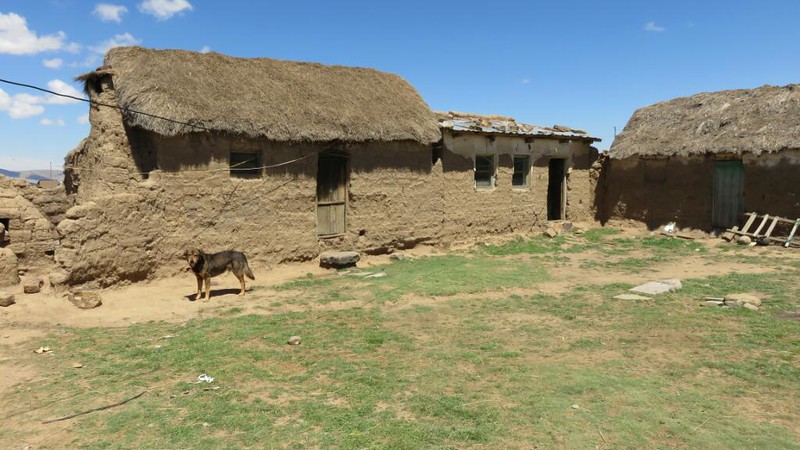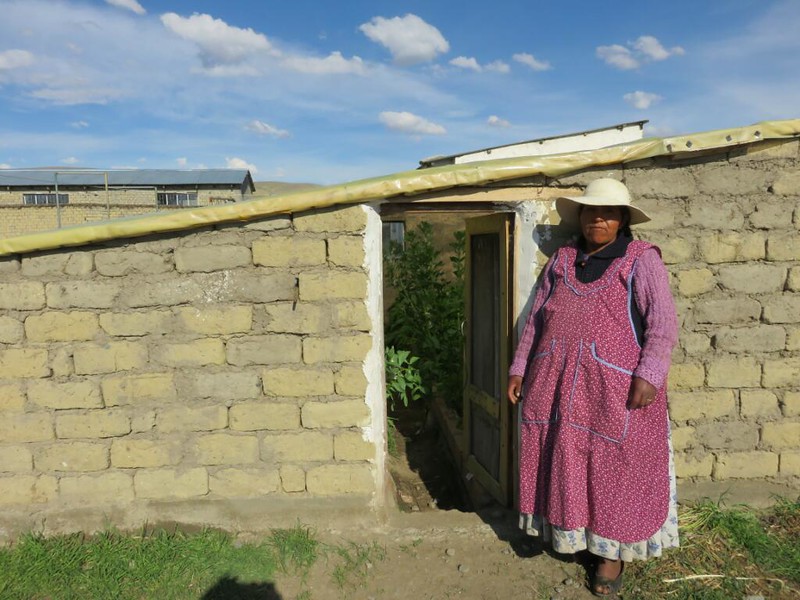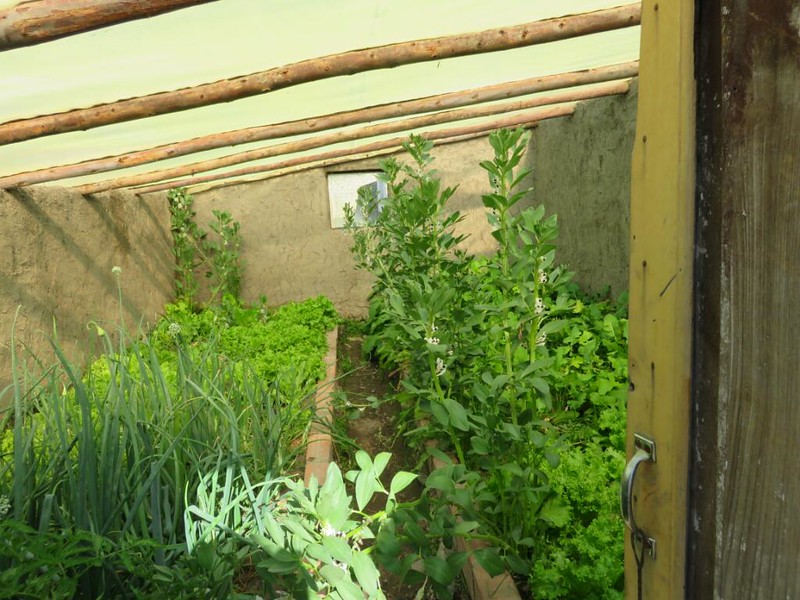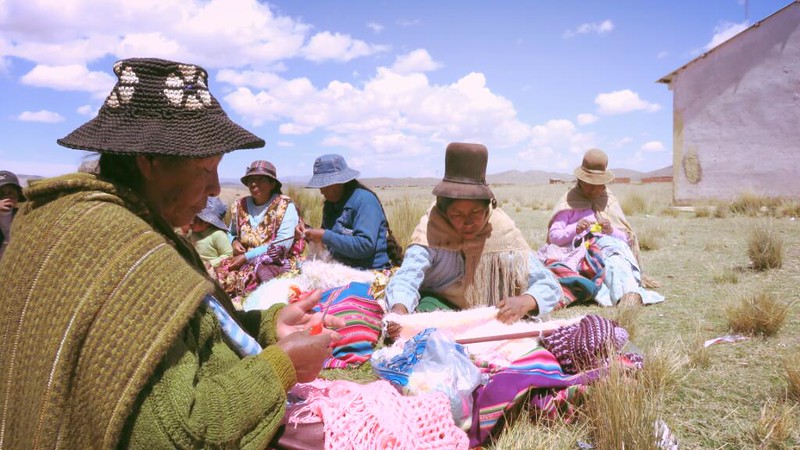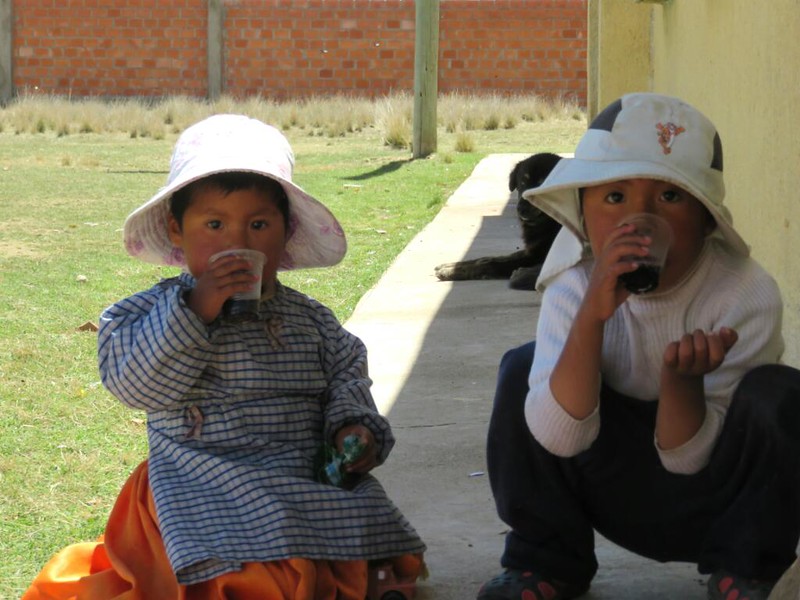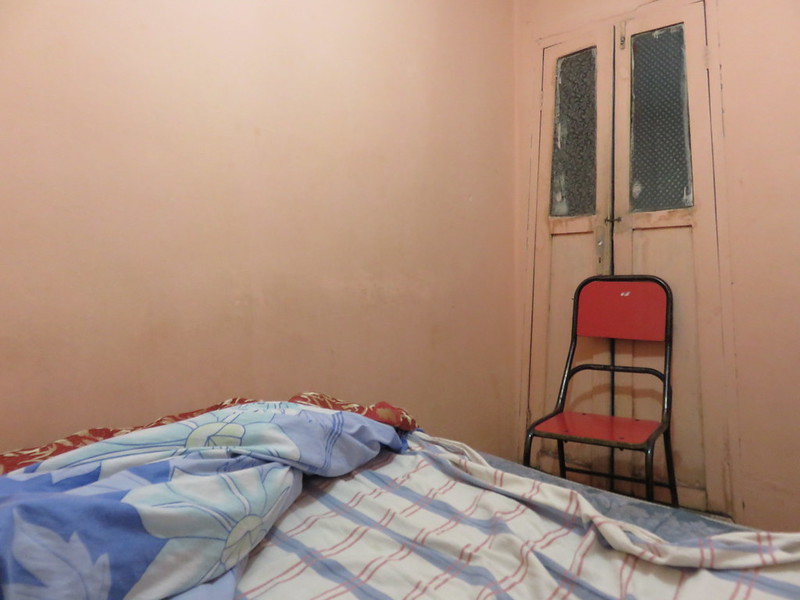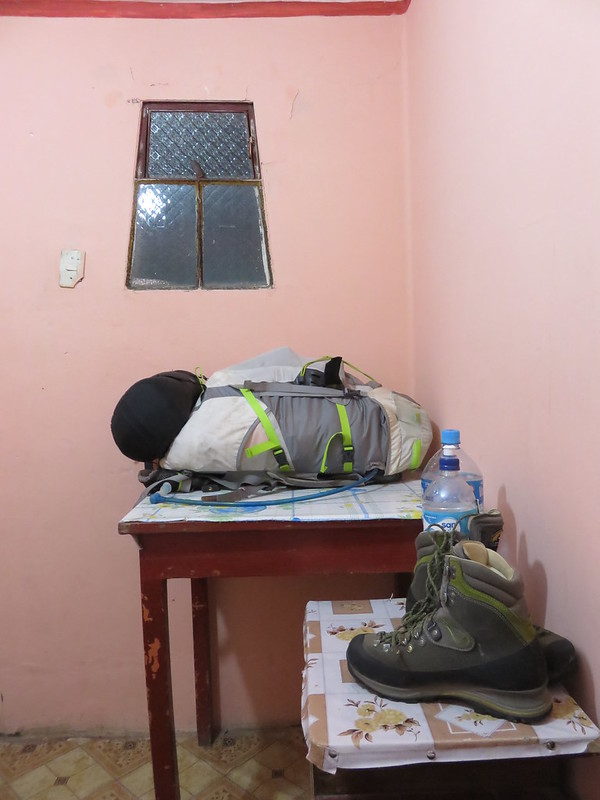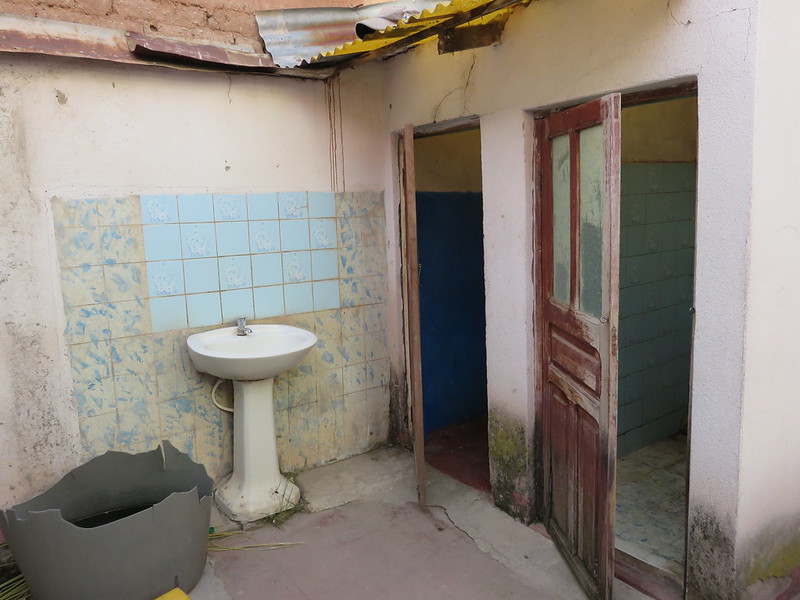Beginning from the day I left Viacha, Bolivia, I was feeling trapped behind the black wrought iron gates with the pointy tops. The silver padlock and two dogs, Speedy the white, fluffy, yappy pooch and Butchy, the large, menacing Saint Bernard, confirmed that fact. In addition, several armed guards dressed in khakis with automatic rifles and machine guns displayed intimidatingly across their chests were stationed only a block down the dusty road.
The many “hanging effigies” cinched up on telephone poles appeared to my mind and I wondered if the guards had the same reputation as the police officers. In Bolivia, the police department is known to be corrupt and inefficient, as I found out in Copacabana, so community members have learned to take matters into their own hands to protect their livelihoods and to ensure justice is served for criminal actions. Vigilantes hang these intimidating stuffed-body displays as a warning to would-be criminals of the fate that awaits them if they steal from any of the shop owners in the area. These guards, however, were not police officers, but soldiers protecting their army base. Still, the question of morality sits as precariously as a tower of cards in my mind and makes me feel uneasy.
I had seen the repercussions of stealing in La Paz one day as I walked through a street-side market. A poor man was kneeling on the street with one dirty hand cupped out in front of him. The other hand didn’t exist. It had been cut off at the wrist. It was clear to me why, but even still the vision stopped me in my tracks. I dug through my pockets for change, turned around and placed the coins in his lonely hand. He was a thief; one out of a group of people that I have learned to loathe during the last three months, but he had paid the price and was clearly suffering for it. It was likely a lesser punishment than other criminals around La Paz have paid if the hanging effigies symbolize the norm.
All of this reminded me of just how insecure I, the seemingly rich gringa, felt fumbling around in South America’s poorest country. It’s a foreign feeling having been nestled under the protective wing of my own country all my life, but I have learned from it. My peripheral vision is stronger now than ever and I have developed a very sporadic, zig-zaggy walk: fast then slow or a quick stop, then steady with a sharp zig to the left or zag to the right. I would practice this often, but especially after exiting the Western Union with a replenished pocket full of American and Boliviano bills.
Outside of a bank would be a perfect place for a tourist predator to lurk and then follow their victim until an opportunity to pounce presented itself. My awareness of this possibility had me headed for the nearest washroom where I would stand in a stall and carefully fold and slide bills into my bra pockets careful to distribute them evenly enough so that my breasts didn’t look lopsided or like they were being supported by two thick rectangular wads.
The bra became my new money belt. It worked fabulously until I had to pay for something. Normally, I visited a washroom first to pull the money out, but sometimes that wasn’t an option like the time I crossed from Peru into Bolivia. The bus had stopped on the Peruvian side of the border at a small store with a washroom. I had used it at that time, but didn’t think I would need any cash, so I didn’t pull any out. Later, I found out that the Peruvian immigration officers wanted money from me for creating a new immigration card. The other card had been stolen along with my money belt on the bus between the jungle and the wasteland of Juliaca. So, I walked back to the store to use the washroom a second time and make my withdrawal in private. The washroom was closed and the woman manning the store counter wouldn’t let me use it. Really? I looked at her, apologized and reached down through the collar of my shirt, rummaged through my bra and pulled out some bills. It was a little embarrassing, but better in front of her than the immigration officers.
Money wasn’t the only thing I needed to be concerned about. The reel of my memory constantly replayed the day’s events in order to keep track of my four most valuable items: my flute, iPod, camera and new tablet. Do I have them? Where did I place them this morning? The most visible of the four items was my camera, so I constantly looked down to check my right hip where the case was attached to my belt. Was the wrist strap still hanging out of the case? Yes. Good.
In my memory, I recall the many sets of eyes that followed and inspected me from the top of my blonde head to the soles of my La Sportiva trekking boots. Regardless, the freedom-loving part of myself felt the urge to flee my confines behind the iron gate that Butchy would jump up on and rattle every time someone walked passed. It’s similar to the feeling you get when one day you discover you are in a relationship that deep down inside you know you shouldn’t be in anymore. The need to escape fluttered in my heart. My mind became restless.
The day after I last posted I made the decision to leave the following day. The next step was to communicate my intentions to the family and let them know I was serious. With the language barrier words weren’t going to be enough, so I packed up my belongings and stationed my full backpack and trekking boots in full view beside the door to the office that I had been working in during the previous days.
My work was done in Viacha and the nudging in my heart was telling me it was time to move on. Now that I had finished putting together the blog for Willy and Maxima, all they needed to do was log in, exchange the Lorem Ipsum text with their own, add their own images and practice making posts. Plus, I had finished uploading my last featured blog post titled “The Fuzzy Edge of Hindsight”, which told of my suspicions about my traveling companion, “The Ghost Traveller”, who slipped away as quickly as he appeared to me two days after I met him on the bus between Puno and Copacabana. It was a lesson that not everyone is as they appear and a reminder to be aware of my surroundings and the location of my belongings at all times. In South America, a solo female traveler is a target, especially one with fair skin and blonde hair. So, it’s important to be extra alert. Blending in wasn’t an option.
My plan was to take off to La Paz and book two tours. One of them was to cycle the notorious “Death Road” and one was to explore the world’s largest salt flat and volcanic region, Salar de Uyuni.
Julio had come home. He appeared to be a single Bolivian father with two girls. He lives at the tourist house and volunteers much of his time to CHOICE, however he would often disappear throughout the day without a word and I would be left alone locked behind the gates. Finally, when he returned I quickly jumped up from the computer and caught his attention. I pointed to my stuffed backpack and motioned towards the door that it was time for me to go. He got the picture and communicated my intentions to Willy and Maxima. A weight finally lifted. I would leave the next morning.
Staying with Willy and Maxima for a week was just what I needed to regroup and to feel as safe as possible while I recovered from my second robbery not to mention it was a comfortable place to recuperate after my recent head cold. They looked after me well and showed me some of the surrounding villages where projects were taking place. I was able to see the amazing efforts they put into helping the people through CHOICE Humanitarian. One of the big projects is the women’s program.
The village women, beginning as young as 10 years old, knit alpaca scarves which are couriered to the United States and sold for 80 Bolivianos each which works out to approximately $12 US. Half of the profit goes to the various small communities surrounding Viacha to support education and households. The other half goes to the cost of materials for making the scarves and for postage.
Other projects include a water system, greenhouses and a milkery to produce cheese.
I was lucky enough to visit a school yard where the women all sat in a group socializing and knitting taking the odd break for a plastic cup full of Coca Cola.
I have never drunk so much Coke as I have in South America. It is definitely the most popular drink among the local people.
My intention was to return to Viacha once I had knocked a few things off my Bolivian bucket list. My time away would give Willy and Maxima a chance to practice on the blog and upon my return I could answer questions.
The following morning I loaded my backpack into the back of Willy and Maxima’s pick-up truck, minus a couple of things I thought best to leave for when I returned, specifically my flute and iPod. There was no way I wanted to risk them being stolen. My paranoia was running high.
Willy and Maxima drove me as far as they could towards La Paz, until a public demonstration forced them to stop and turn around. It seems you have to be prepared for anything. During my time in Bolivia thus far, three public demonstrations had affected traffic. If I wanted to get to La Paz, I had no choice, but to get out amongst the chaos, collect my backpack from the box of the truck and meander through the crowd to a place I could flag a mini-bus to take me the remainder of the way.
Finally, I made it into La Paz, but I ended up staying in the second most dingy hostel that I have set my eyes upon. The one that wins the prize (below) was in Copacabana following the last robbery.
Unfortunately, I have no photos of the one in La Paz, but there were no windows in my room, just blank walls without pictures and a small TV bolted up near the ceiling. The room was an ice box and contained one double bed and one side table. It was definitely not my idea of relaxation, but it was only for one night and then I would get the heck out and be on my way towards Death Road.

